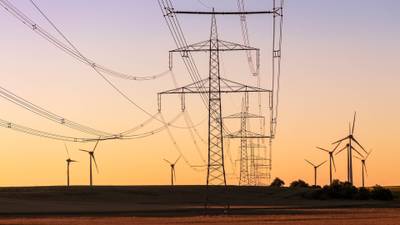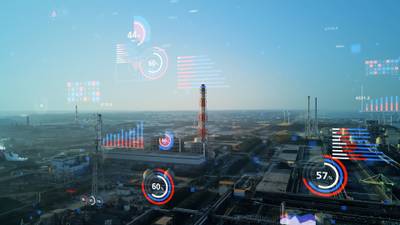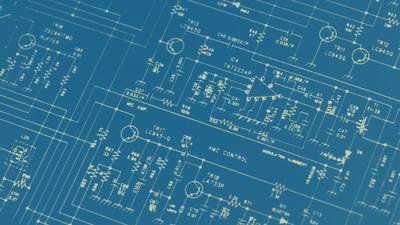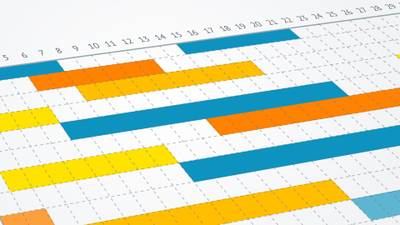Join a flexible online energy systems integration course.
Acquire the knowledge and skills you need for the analysis and planning of renewable energy systems.
In this Masters-level online short course, you’ll learn how to:
- plan the configuration and size of renewable energy systems
- plan multi-energy systems and assess their role in the energy transition
- take into account system integration considerations
- use critical analysis and multi-criteria assessment.
You’ll put your new knowledge and skills into practice by delivering hands-on individual and group system-integration projects.

Build credits towards a Masters degree
This online course is part of:
You can use the credits you earn on this short course towards this MSc qualification.
What you’ll study
In this course, you’ll cover the following topics:
Fundamentals of energy systems, including:
- demand load analysis
- reliability, power and lifespan cost analysis
- renewable resource data analysis
- technical characteristics of renewable energy and storage technologies.
Energy systems integration considerations, including:
- overall technical measures and their techno-economic characterisation
- performance measures
- incentives, requirements and limitations
- network expansion and densification
- digitisation of the energy system and smart grid
- flexible supply and demand.
Energy systems planning and design, including:
- system configuration and size optimisation, and
- multi-criteria assessment of system performance.
By the end of this course, you’ll be able to...
-
Analyse the technological, economic and environmental performance measures of energy system integration solutions by employing suitable models and analysis methods.
-
Interpret the rationale behind energy projects, government incentives, market trends, limitations and requirements in the context of energy transition.
-
Assess the partly conflicting performance measures for energy systems, and the technical and economic characteristics of various renewable and non-renewable energy technologies.
-
Implement identified objectives, constraints and requirements for a given energy system integration problem in the context of a consistent solution approach.
-
Plan, for a given existing system, the optimum bespoke high-penetration renewable system and document the integration requirements.
-
Critically appraise the system impacts of integration of renewable energy technologies through multi-criteria assessment of different integration technologies for specific energy systems.
Why choose the University of Aberdeen for online renewable energy courses?

Earn as you learn
We fit around full-time work, so you can earn qualifications while you keep earning a salary.

You’re in expert hands
We’ve been training energy professionals for decades and delivering online learning for over 20 years.
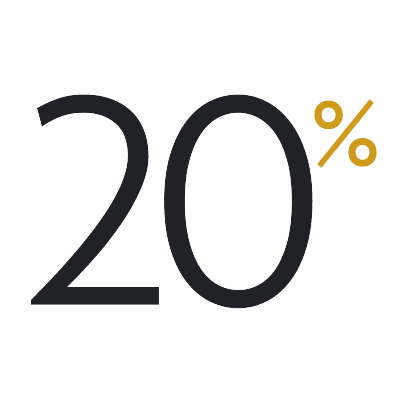
20% alumni discount
University of Aberdeen alumni get 20% off this online course.
How you’ll study
Online learning
This distance-learning energy systems integration course is delivered flexibly, 100% online.
You can learn anywhere, with no need for a study visa, and manage your hours to suit you.
Your teaching
This course is taught at Masters level.
Teaching is delivered through MyAberdeen, our online Virtual Learning Environment (VLE). It holds all the materials, tools and support you’ll need in your studies. Take a look around MyAberdeen.
You can access your learning materials on computer, smartphone and laptop, 24 hours a day. You’ll find a range of resources at your fingertips, including:
- video lectures
- reading materials
- online group meetings for your group projects
- discussion boards with your tutor and peers
- the online resources of our award-winning Sir Duncan Rice Library.
This course is delivered by our School of Engineering.
You’ll be assessed online for this course, via:
- individual coursework (worth 50% of your final grade), and
- group project coursework (worth 50% of your final grade).
Assessment deadlines
Your assessments will have submission deadlines, either during or at the end of the course. Your course coordinator will let you know when your assessment deadlines are, so you can plan your study time accordingly.
The course totals approximately 150 hours of study and assessment time. That’s around 10 – 15 hours per week.
This is an indicative guide to the time required for a typical student at this level to achieve the learning outcomes.
You can largely set your own study hours each week to cover the materials. MyAberdeen is available 24/7, so you can log in and study when it suits you.
Activities with deadlines
There will be some activities scheduled for fixed times, such as assessments with deadlines or meetings with your tutor. But otherwise, you can access and work through the course at your convenience.
Our first-class support structure will ensure that you aren’t alone in your studies. You’ll have contact with your coordinator via email, MyAberdeen and Microsoft Teams. You can use social media and discussion boards to chat with your fellow students too.
We provide a wide range of services to support you in your studies and beyond:
- Careers and Employability Service
- Disability support
- IT support
- Library support
- Student Support Service – help with finances, stress, wellbeing and non-academic issues
- Student Learning Service – study support, with advice sessions available via phone or Skype
- Aberdeen University Students’ Association (AUSA) – run by students for students
- Toolkit – clever apps and free training that can make your study life easier
Wherever you are in the world, you’ll feel part of our very special Aberdeen learning community.
Your course coordinator

Professor Alireza Maheri
Alireza is the School of Engineering Champion in Energy Transition. His research focuses on the planning of hybrid renewable energy systems and energy transition.
View Alireza’s profileWhere this will take you
Towards a Masters
You’ll earn 15 credits at Masters level (SCQF Level 11) with this course. You can use these credits towards our:

Masters in Energy Transition Systems and Technologies
Join an online MSc that’s training the next generation of systems engineers. Help our planet transition from oil and gas to net-zero, with a degree you can study online, part-time.
View MSc Energy Transition Systems and TechnologiesCareers
By completing this course, you’ll gain in-demand skills for renewable energy careers in the planning and analysis of renewable energy systems.
Whether you’re already working in the energy sector or want to develop your career in the fast-growing renewables field, this course will open doors for you.
Continuing Professional Development (CPD)
Your employer or professional institute may recognise this course for CPD hours. Talk to your employer or institute to find out more.

Free career support
Access our free careers service while you study.
- 1:1 appointments
- CV checks
- Interview prep
- Job opportunities
Entry requirements
Entry requirements
We welcome students from all over the world.
This course has no formal entry requirements. You do not need to provide proof of your qualifications.
But you do need to check the entry guidance above to understand the level of teaching delivered, to decide if this course is right for you.
If you do not have qualifications from the UK, check the equivalent teaching level for your country.
Visa requirements
You do not need a student visa to study online with us.
English language requirements
Teaching is delivered in English.
You do not have to provide proof of your English language skills to join this course. But we want to make sure that you can use English well enough to study successfully.
Recommended level of English
For this course, we recommend the following level of English language proficiency.
These are our Postgraduate Standard requirements, and these are minimum scores.
IELTS Academic, IELTS UKVI Academic, and IELTS Online (not IELTS Indicator or IELTS General Training)
- 6.5 overall
- 5.5 for listening, reading and speaking
- 6.0 for writing
TOEFL iBT and TOEFL iBT Home Edition
- 90 overall
- 17 for listening
- 18 for reading
- 20 for speaking
- 21 for writing
- TOEFL DI code is 0818
Cambridge English: B2 First, C1 Advanced, or C2 Proficiency
- 176 overall
- 162 for listening, reading and speaking
- 169 for writing
LanguageCert Academic/LanguageCert Academic SELT
- 70 overall
- 60 for listening, reading and speaking
- 65 for writing
LanguageCert International ESOL B2 Communicator (Written and Spoken) – Online / In-centre
- Overall High Pass
- 33 for listening, reading and speaking
- 38 for writing
Oxford ELLT Digital – English Language Level Test Online
- 7.0 overall
- 5.0 for listening, reading and speaking
- 6.0 for writing
PTE Academic (online test not accepted)
- 62 overall
- 59 for listening, reading, speaking and writing
For full information about language requirements, see our English Language Requirements page.
You will need access to:
A computer (PC, laptop or Mac) operating on either:
- Windows 10 or later
- macOS 10.15 (Catalina) or later.
Most teaching materials are smartphone- and tablet-friendly. But we recommend a proper laptop or desktop for completing assignments comfortably.
Reliable internet access
We recommend:
- a wired connection
- a minimum download speed of 2 Mbps so you can take part fully in live sessions.
Speakers or headphones
- We recommend a headset with built-in microphone and earphones if you’re likely to study in an environment with background noise.
- A webcam is optional, but you may like to use one for some interactive sessions.
Software
We’ll give you access to Office365 applications. This means you can use online versions of Microsoft Word, Excel, and PowerPoint and install these programs on up to five personal devices.
If your course requires specialist software, we’ll provide you with access to this and a licence that lasts throughout your studies.
See our detailed IT requirements for more information.
When you study with us, you can expect a first-class support structure so that you’re never alone in your studies.
But learning online does mean you have to motivate yourself and manage your own time.
Your most important commitment will be time – the time to work through, reflect on and understand your teaching materials.
Before you start a course that involves a high degree of independent study, we recommend looking at the time you will be able to devote to your studies each week:
- Be realistic
- Create a weekly schedule as a guide
If you have any questions about studying online, get in touch with our friendly team. We’re here to help.
Fee payment
Your course fee needs to be paid in full before you start your course.
We accept payment via Visa Debit, Visa Credit and Mastercard.
Ways to save
You may be able to get help funding this course via:
- discounts – if any discounts are available for this course, they’ll appear in the section below
- employer sponsorship – we accept full and partial fee payments from sponsors.
Find out more about funding options.
Student card
All our students are entitled to a University of Aberdeen student card. This gives you access to a range of student discounts around the city and online.
Learning resources
Access to all the essential books and resources you need are included in your tuition fee. They’ll be made available to you online and you do not have to buy your own copies.
We also provide optional recommended reading lists. Many of these resources are available electronically through our library, although purchases may be required if you wish to read the full list.
Printing
You may want to set aside a small budget for printing, depending on how you like to work.
This course has no formal entry requirements. You decide if it’s suitable for you.
The course is delivered at Masters level. At this level, you’d usually have at least:
- a 2:2 UK honours degree (or equivalent) in Engineering, Applied Mathematics or Physics, or
- relevant experience that supports this level of study.
Apply for this course






